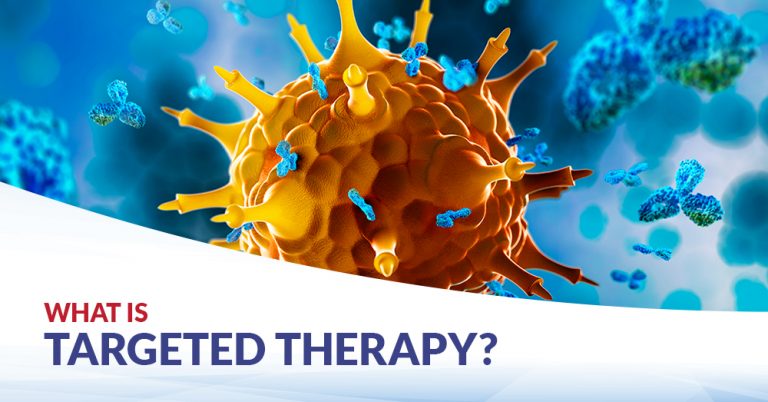Targeted Therapy
Customised Weapons: A Comprehensive Guide to Molecularly Targeted Agents and Targeted Therapy Medications
Chemotherapy and other broad-spectrum medicines have long been used to combat cancer, a complicated and multifaceted illness. Although these treatments have the potential to be beneficial, they frequently have serious adverse effects because they damage both healthy and malignant cells. Molecularly targeted agents, another name for targeted treatment medications, provide a more focused method. Let’s explore the realm of these highly skilled combatants of cancer.
Table of Contents

Breaking Down Cancer: The Targets
Mutations in the genes that regulate cell division and proliferation are the root cause of cancer. Certain chemicals within cancer cells are activated by these alterations, promoting the unchecked growth and dissemination of these cells. Drugs used in targeted therapy recognise and specifically target these distinct molecular anomalies, which stops the cancer’s growth mechanism.
Below are a few important molecular targets:
- Proteins: In signalling pathways that encourage the growth of cancer cells, enzymes known as kinases are essential. Growth signals can be stopped by targeted medications that block these kinases.
- Receptors: The surface of some cancer cells contains an excess of a particular type of receptor. Monoclonal: antibodies and other targeted medicines have the ability to attach to these receptors and prevent them from interacting with growth factors.
- Mutations: Specific genetic mutations are present in some malignancies. Utilising these alterations, targeted medications can impede the cancer’s capacity to proliferate and spread.
The Targeted Therapy Arsenal: Various Weapons for Various Conflicts
Many different types of medications, each with a unique mechanism of action, are included in targeted therapy:
Monoclonal antibodies are produced in laboratories and specifically target cancer cells by imitating the immune system of the body. They can deliver toxic payloads directly to malignant cells, signal cancer cells for immune system destruction, or disrupt growth factors.
- Small-molecule Kinase Inhibitors: These medications are able to penetrate cells due to their small size and directly block kinase activity, which stops the growth signals in cancer cells.
- Tyrosine kinase inhibitors (TKIs): A particular family of small-molecule kinase inhibitor that targets a class of enzymes known as tyrosine kinases, which are essential for the signalling of cancer cells.
- Hormonal Therapy: This kind of tailored treatment stops the growth of tumours that are hormone-dependent, such as prostate and breast cancer. Medication can stop the body from producing hormones or stop cancer cells from using hormones to proliferate.
Targeted Therapy Benefits: A Sharper Sword
Targeted therapy has many advantages over conventional chemotherapy.
- Decreased Side Effects: These medications limit harm to healthy cells by focusing on particular chemicals in cancer cells, which results in fewer and milder side effects.
- Enhanced Efficacy: When used to treat some malignancies, targeted medicines can be very successful, frequently resulting in tumour shrinking and better patient outcomes.
- Personalised Health Care: Finding the precise molecular changes causing a patient’s cancer enables individualised therapy regimens that maximise outcomes.
Obstacles & Things to Think About: Not a single silver bullet
Targeted therapy has drawbacks despite its advancements:
- Resistance: Targeted medications may cause cancer cells to become resistant to them, making them ineffective. Researchers are always coming up with novel ways to get over resistance.
- Not an All-encompassing Fix: The most successful targeted therapy are used for tumours with identified molecular targets. Not every malignancy has targets that are so easy to identify.
- Cost: The high cost of targeted therapy emphasises the need for increased affordability and accessibility.
Targeted Therapy’s Future: A Constantly Changing Environment
As targeted therapy research continues, scientists are pursuing new avenues of inquiry:
- Combination therapies: To increase efficacy and overcome resistance, targeted medications can be used in conjunction with other therapies like immunotherapy or chemotherapy.
- Finding New Targets: As a result of research, innovative targeted medicines are being developed by revealing new molecular pathways implicated in the progression of cancer.
- Liquid Biopsies: These less intrusive procedures make it simpler to track mutations and adjust treatment in response to the cancer’s real-time alterations.
Drugs used in targeted therapy constitute a major advancement in the treatment of cancer. They have great potential to enhance patient outcomes and quality of life by providing a more focused and customised approach. Targeted therapy is set to become an even more potent tool in our battle against this complicated disease as research into the complexities of cancer biology continues to shed light on the disease.


